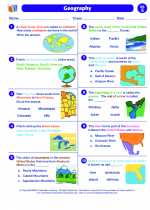Christianity
Christianity is a monotheistic Abrahamic religion based on the life and teachings of Jesus Christ. It is the world's largest religion, with over 2 billion followers, known as Christians. The central beliefs of Christianity include the belief in Jesus as the Son of God, the Messiah, and the savior of humanity. Christians also believe in the Trinity, which consists of God the Father, Jesus Christ the Son, and the Holy Spirit.
Key Beliefs
- God: Christians believe in the existence of one God who created the universe and is omnipotent, omniscient, and omnipresent.
- Jesus Christ: Central to the Christian faith is the belief that Jesus is the Son of God, who came to earth, was crucified, and rose from the dead to bring salvation to humanity.
- Bible: Christians consider the Bible, consisting of the Old Testament and the New Testament, as the sacred and authoritative word of God.
- Salvation: Christians believe that salvation is achieved through faith in Jesus Christ and his atoning sacrifice on the cross.
- Resurrection: Christians believe in the resurrection of the dead and the promise of eternal life in the presence of God.
Major Branches
Christianity has several major branches, including:
- Catholicism: The largest Christian denomination, led by the Pope and centered in Rome.
- Protestantism: A diverse group of denominations that originated from the Protestant Reformation in the 16th century.
- Orthodox Christianity: A group of autocephalous churches that are in communion with each other, with the Ecumenical Patriarch of Constantinople considered as the first among equals.
Important Figures
Key figures in Christianity include:
- Jesus Christ: The central figure and founder of Christianity, believed to be the Son of God and the Messiah.
- Apostle Paul: A major early Christian missionary and theologian who played a significant role in the spread of Christianity.
- Virgin Mary: The mother of Jesus, revered in various Christian traditions.
Holy Sites
Important holy sites in Christianity include:
- Church of the Holy Sepulchre: Located in Jerusalem, it is believed to be the site of Jesus' crucifixion, burial, and resurrection.
- Vatican City: The center of the Catholic Church, housing St. Peter's Basilica and the Sistine Chapel.
- Bethlehem: The birthplace of Jesus, visited by pilgrims and tourists from around the world.
Study Guide
As you study Christianity, consider the following questions:
- What are the central beliefs of Christianity and how do they influence the lives of Christians?
- How did the life and teachings of Jesus Christ contribute to the development of Christianity?
- What are the major branches of Christianity, and how do they differ in terms of theology and practices?
- Why are certain figures, such as Jesus, Apostle Paul, and Virgin Mary, considered important in Christianity?
- What are some of the significant holy sites in Christianity, and why are they significant to believers?
Exploring these questions will provide a deeper understanding of the history, beliefs, and practices of Christianity and its significance in the world today.
[Christianity] Related Worksheets and Study Guides:
.◂Social Studies Worksheets and Study Guides Fifth Grade. Geography

 Worksheet/Answer key
Worksheet/Answer key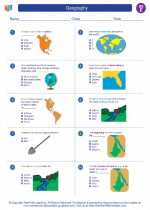
 Worksheet/Answer key
Worksheet/Answer key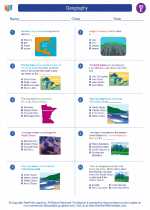
 Worksheet/Answer key
Worksheet/Answer key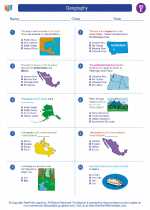
 Worksheet/Answer key
Worksheet/Answer key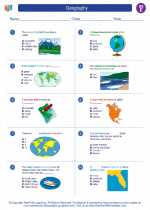
 Worksheet/Answer key
Worksheet/Answer key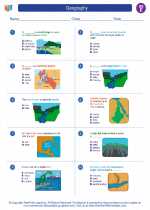
 Worksheet/Answer key
Worksheet/Answer key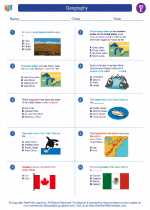
 Worksheet/Answer key
Worksheet/Answer key